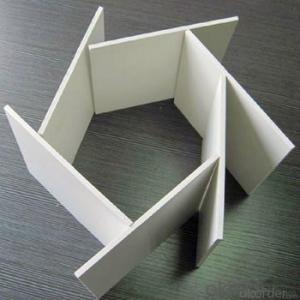Ceiling grid systems are an essential aspect of modern interior design, offering both functionality and aesthetics. They are the backbone of any suspended ceiling, providing a framework for the installation of various ceiling tiles and other components. In this guide, we will explore the ultimate guide to ceiling grid systems, covering everything from their history, types, installation, maintenance, and even some creative uses. So, lets dive in!
A Brief History of Ceiling Grid Systems
Ceiling grid systems have been around for quite some time, but they became popular in the mid-20th century with the rise of modern architecture. They were initially designed to provide a simple and cost-effective way to create a suspended ceiling, which allowed for better access to building services such as HVAC, lighting, and fire safety systems. Over the years, they have evolved to become an integral part of interior design, offering a wide range of options for both residential and commercial spaces.
Understanding the Components of a Ceiling Grid System
A ceiling grid system is made up of several components, including the main tees, cross tees, perimeter trim, and ceiling tiles. The main tees are the primary support structure, running parallel to the longer walls of the room. Cross tees, on the other hand, run perpendicular to the main tees, creating a grid pattern. The perimeter trim is used to cover the edges of the grid system, providing a clean and finished look. Lastly, the ceiling tiles are placed within the grid, offering both acoustic and aesthetic benefits.
Types of Ceiling Grid Systems
There are several types of ceiling grid systems available, each with its own unique features and benefits. Some of the most common types include:
– Metal Grid Systems: These are the most traditional and widely used systems, known for their durability and ease of installation. They are available in various finishes and colors to suit different design preferences.
– Plastic Grid Systems: These systems are lightweight and cost-effective, making them a popular choice for budget-conscious projects. They are also easy to install and can be painted to match the desired color scheme.
– Custom Grid Systems: For those who want a truly unique and personalized look, custom grid systems offer the flexibility to create a one-of-a-kind design. These systems can be tailored to fit specific dimensions and design requirements.
Installation Process
Installing a ceiling grid system is a straightforward process, but it does require some planning and attention to detail. Here are the general steps involved in the installation:
1. Planning: Before you start, its essential to plan the layout of the grid system, taking into account the rooms dimensions and the location of any obstructions such as light fixtures or air vents.
2. Assembling the Grid: Once the layout is determined, the main tees and cross tees are assembled to create the grid pattern. This is typically done by connecting the tees at their intersections using special clips or fasteners.
3. Installing the Perimeter Trim: After the grid is assembled, the perimeter trim is installed around the edges of the room to cover any gaps and provide a finished look.
4. Laying the Ceiling Tiles: The final step is to lay the ceiling tiles within the grid. This can be done by either pushing the tiles into the grid or using clips to secure them in place.
Maintenance and Cleaning
Proper maintenance and cleaning are crucial to ensure the longevity and appearance of your ceiling grid system. Here are some tips to keep your system looking its best:
– Regularly dust and clean the ceiling tiles to prevent the buildup of dirt and debris.
– Inspect the grid system periodically for any signs of damage or wear, and address any issues promptly.
– If your grid system is exposed to moisture, ensure that it is properly sealed and treated to prevent rust or corrosion.
Creative Uses for Ceiling Grid Systems
While ceiling grid systems are primarily used for their functional benefits, they can also be incorporated into creative design elements. Here are a few ideas to inspire you:
– Acoustic Solutions: By using specialized acoustic ceiling tiles, you can improve the sound quality in a room, making it ideal for music venues, theaters, or conference rooms.
– Lighting Effects: Integrate different types of lighting fixtures into the grid system to create unique lighting effects and ambiance.
– Green Spaces:悬挂植物或其他绿色元素可以增加空间的活力和舒适度。
– Art Displays: Use the grid system as a framework for displaying artwork or other decorative elements, creating a dynamic and engaging visual experience.
In conclusion, ceiling grid systems are a versatile and essential component of modern interior design. With a variety of types, installation options, and creative uses, they offer endless possibilities for enhancing the functionality and aesthetics of any space. Whether youre a homeowner, interior designer, or contractor, understanding the ins and outs of ceiling grid systems will help you create a space that is both practical and visually appealing.

